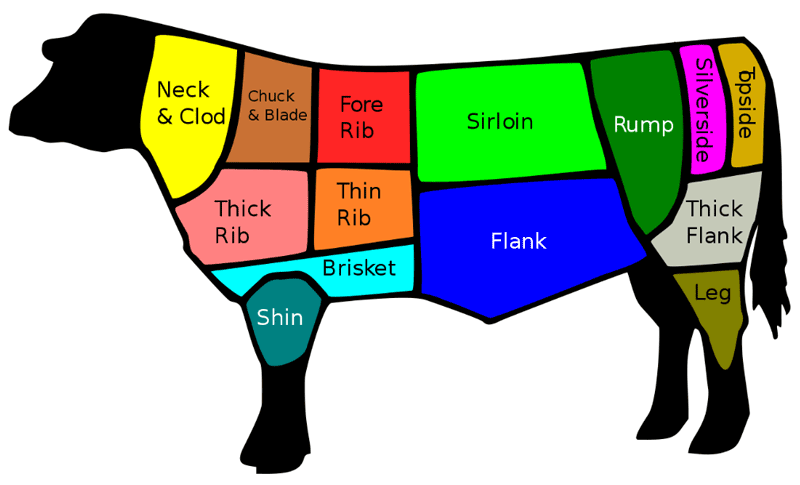
22nd December 2018 World's first lab-grown sirloin steak An Israeli startup has become the first company in the world to produce a slaughter-free sirloin steak, grown in the laboratory.
Aleph Farms was founded by Didier Toubia and Dr. Shulamit Levenberg in 2017. It is part of The Kitchen – a food tech incubator developed by Strauss Group and Israel's Technion Institute – and is supported by U.S. and European investors. Lab-grown meat first emerged several years ago. Until now, it was confined to simple structures with a maximum of only two types of cell tissue, limiting its potential applications. However, through a proprietary 3-D tissue engineering platform, Aleph Farms has developed a new way to create more structured and complex meat products. This can replicate four cell types found in conventional cuts of meat, including vascular and connective tissues, and could soon be of sufficient quality to mimic "the full experience of meat, with the appearance, shape and texture of beef cuts." "Meat is a complex tissue. This breakthrough includes various cell types found in conventional cuts of meat grown together outside the animal to form a 3-D structure similar to meat, but using more sustainable, safe and ethical methods," explains Toubia, co-founder and CEO, in the video below. "These first cell-based meat cuts demonstrate our capability of achieving our vision of growing steaks." This prototype currently costs $50 per steak and requires up to three weeks to grow. Further development is needed to improve its thickness and taste – according to Toubia – so the product is at least three or four years away from reaching supermarket shelves and restaurant menus. "It's close and it tastes good, but we have a bit more work to make sure the taste is 100 per cent similar to conventional meat," he said. "But when you cook it, you really can smell the same smell of meat cooking."
Comments »
If you enjoyed this article, please consider sharing it:
|







